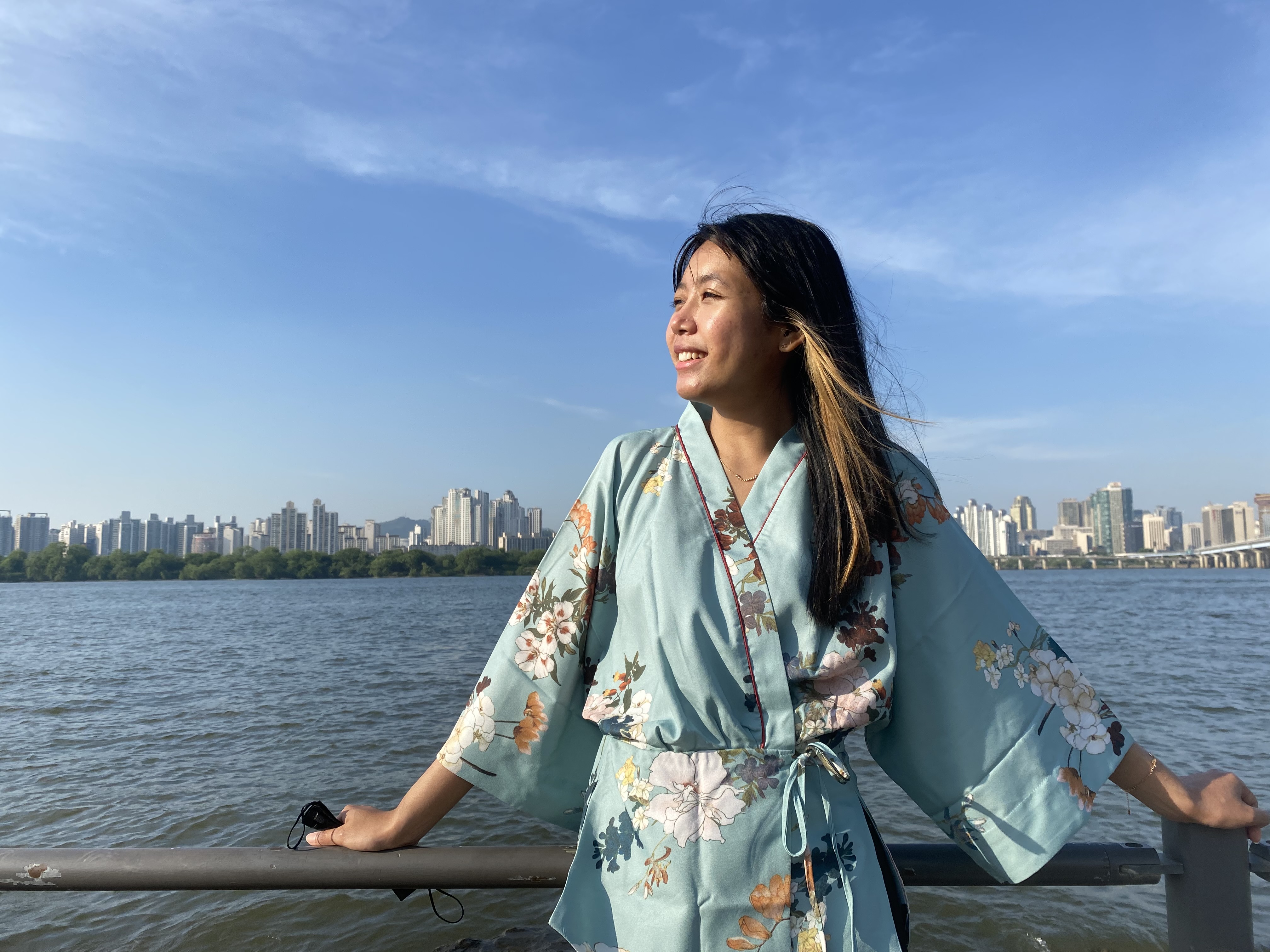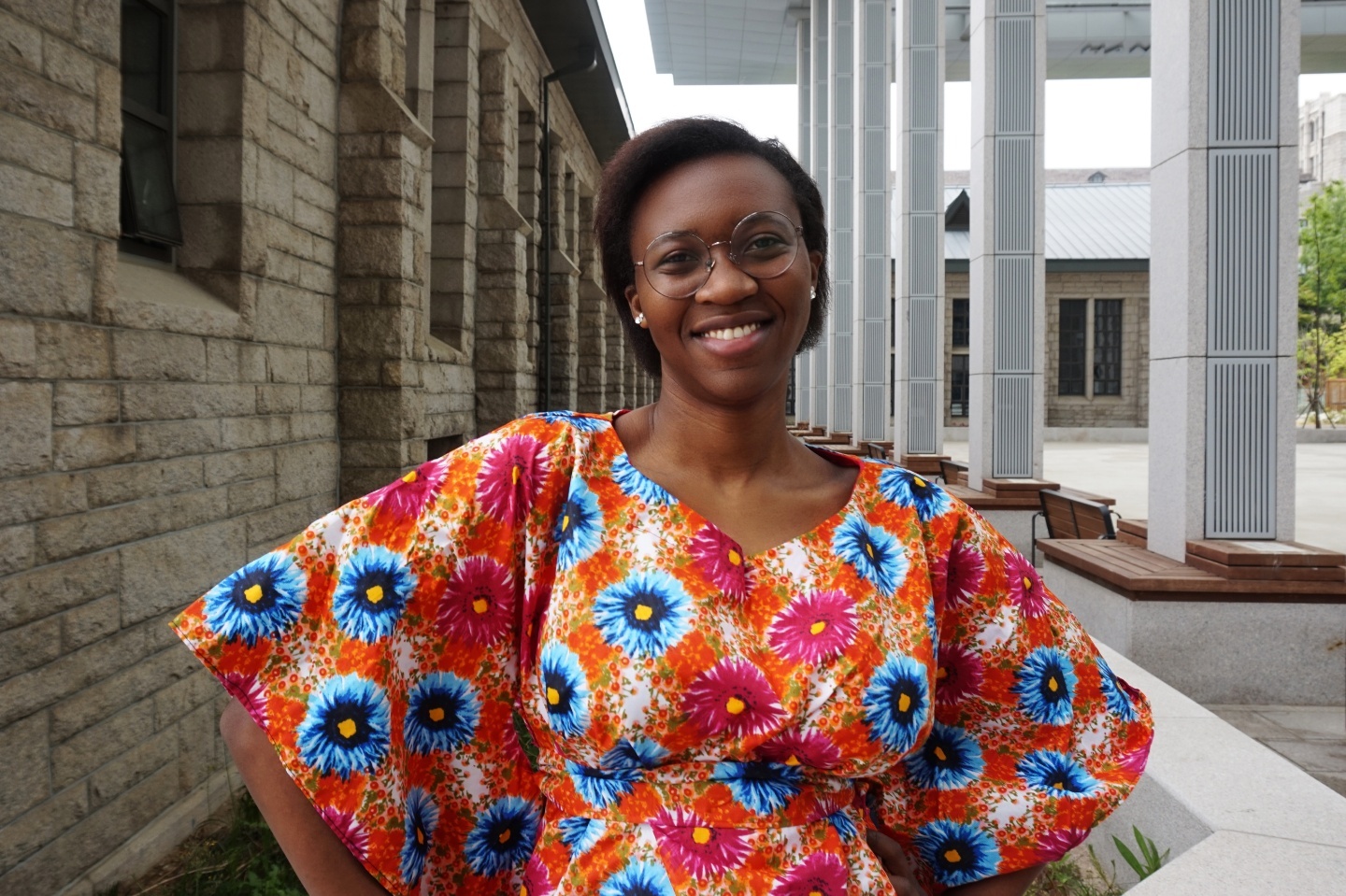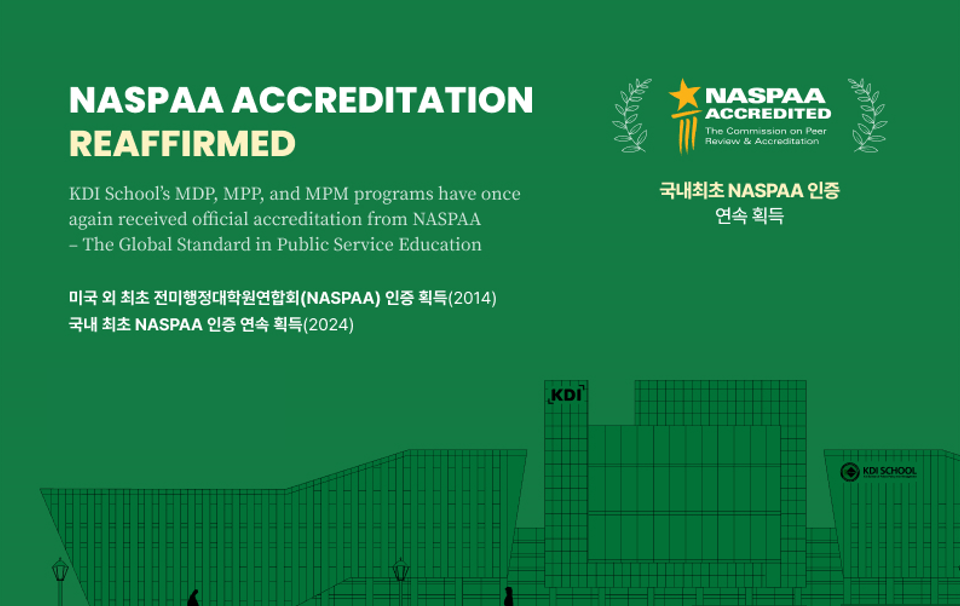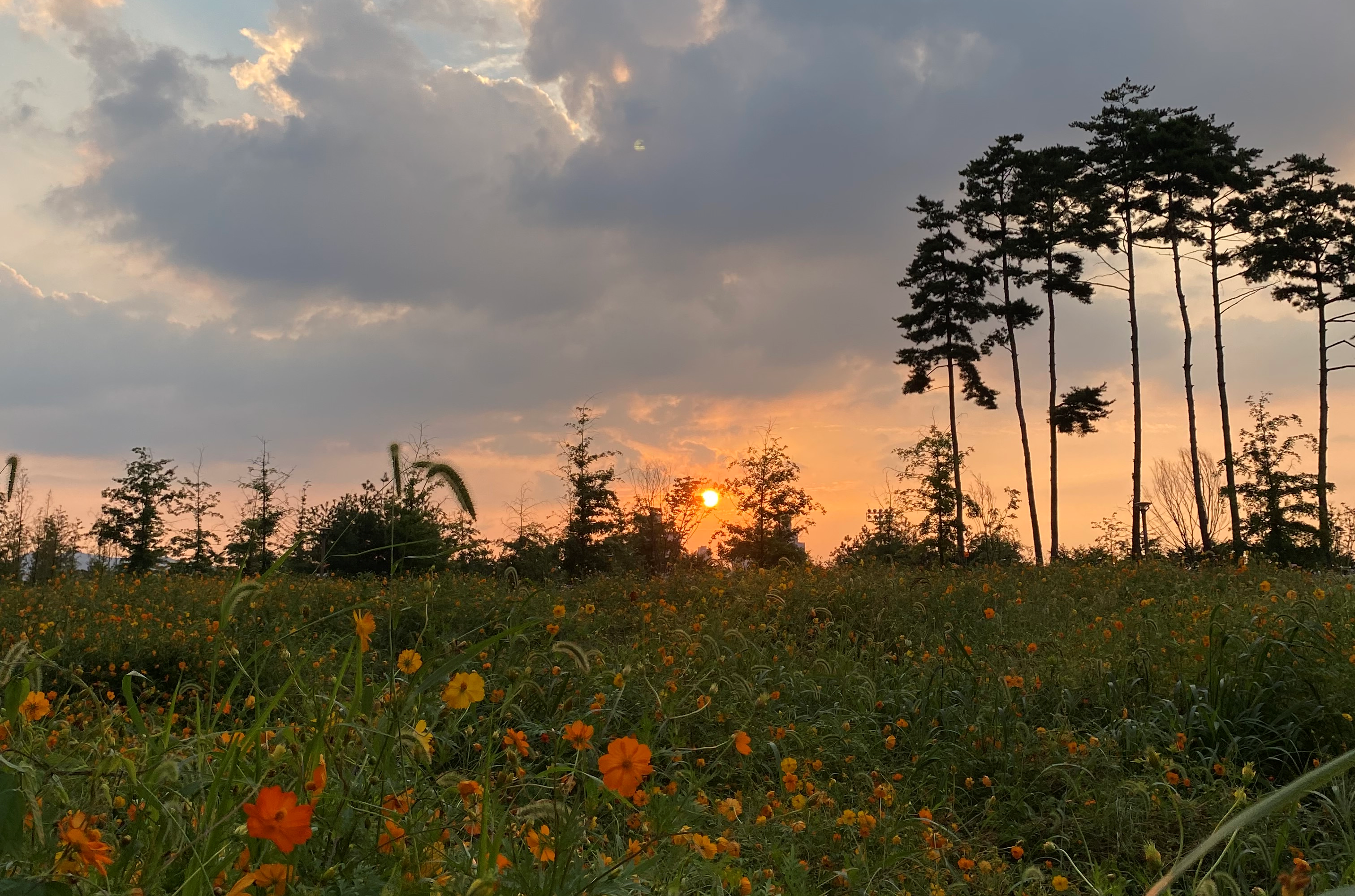
A Conversation with Mr. Abdul Salarzai (2019 MDP): Afghanistan
- Date 2021-05-27 09:01
- CategoryStory
- Hit2298
Mr. Abdul Rahim is a Civil Engineer from Afghanistan with interest in issues of socio-economic development. He has a Master’s in environmental engineering and Environmental Technology and is currently enrolled for another Master’s in Development Policy at KDI School. Prior to coming to S. Korea, Mr. Rahim worked with Afghanistan’s Ministry of Rural Rehabilitation and Development on two World Bank projects: The National Solidarity Program and the Citizen Charter National Priority Program. He was responsible for 16 large and small-scale projects in the province of Kabul. The projects were infrastructure-based, ranging from irrigation canals, small scale flood control canals, school structures, roads, and renewable energy structures. The projects aimed to build and unite villages, neighborhoods, and cities; improve the relationship between the government and the people, and reduce poverty by providing basic services across the country.
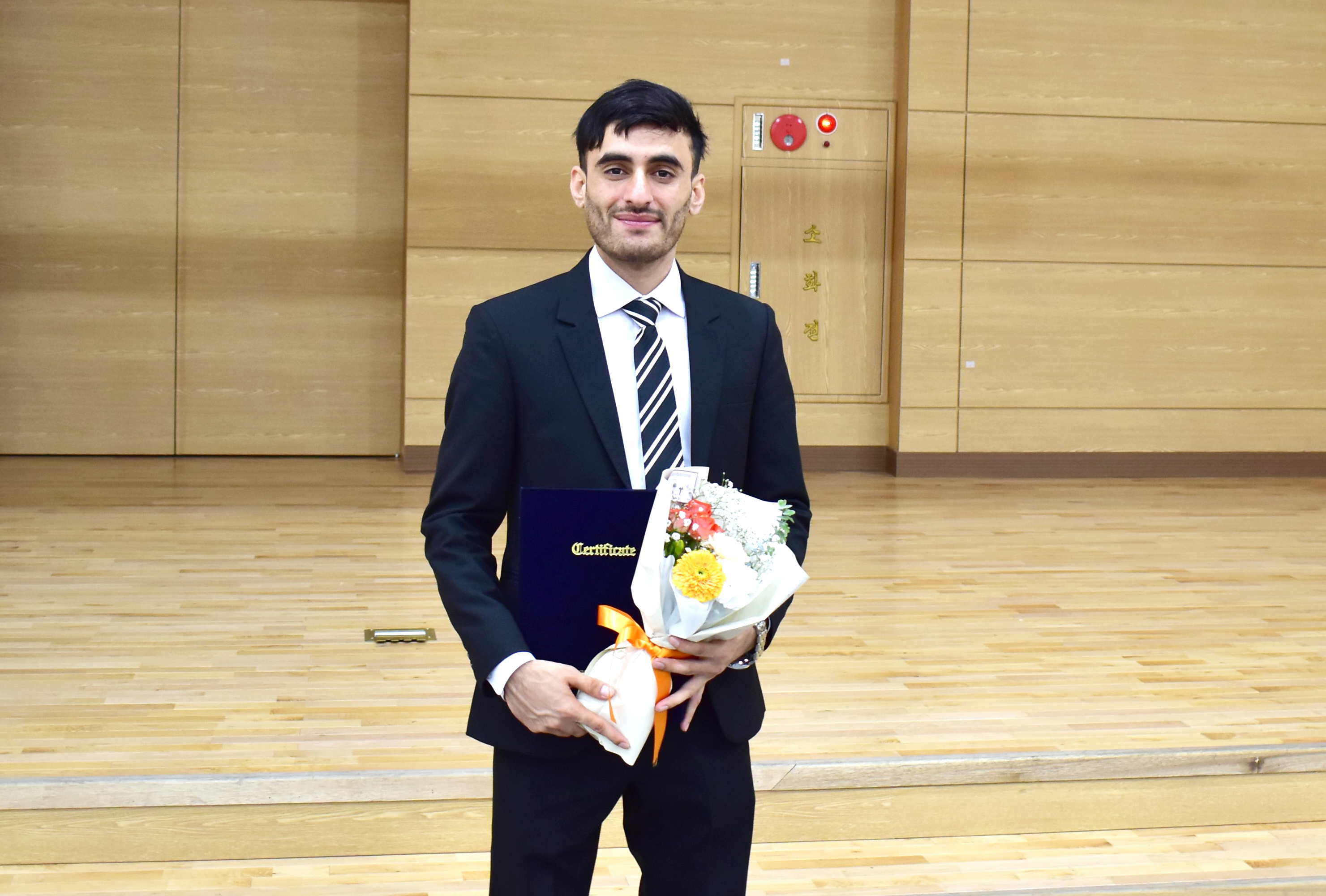
Some years back a friend nudged me into reading Khaled Hosseini’s books; The Kite Runner and A thousand Splendid Suns. I devoured and fell in love with them not only for their lucid storytelling but also the colorful descriptions the writer painted Afghanistan: the snowcapped mountains, the bustling bazaars, the lush and green valleys, the very hospitable people that Afghanis are, basically a list of attributes I had never associated the country with. I can only fault international media for feeding my mind with negative information and little on the good side. Befriending a number of Afghanis further lifted the warped perceptions I had formed. However, this ‘awakening’ does not erase the fact that Afghanistan faces a litany of issues, security being top. It is noteworthy to infer that war has crippled the country in several ways. Change is slowly sweeping across the country though. The other day the US met the Taliban to broker a deal. The Afghani government is about to negotiate with the Taliban and hopefully end the long-time wrangles. International organizations continue to engage a lot more across the country leading up to more development projects. There has been an increase in Foreign Direct Investments (FDIs). One area that has felt the increase is the growing and production of ‘Saffron’, the world’s most expensive spice. For 8 consecutive years, Afghanistan’s saffron has ranked the best globally thereby attracting more foreign investors. Better prospects are on the way.
Mr. Rahim and I met to discuss these and much more. This is how our conversation went.
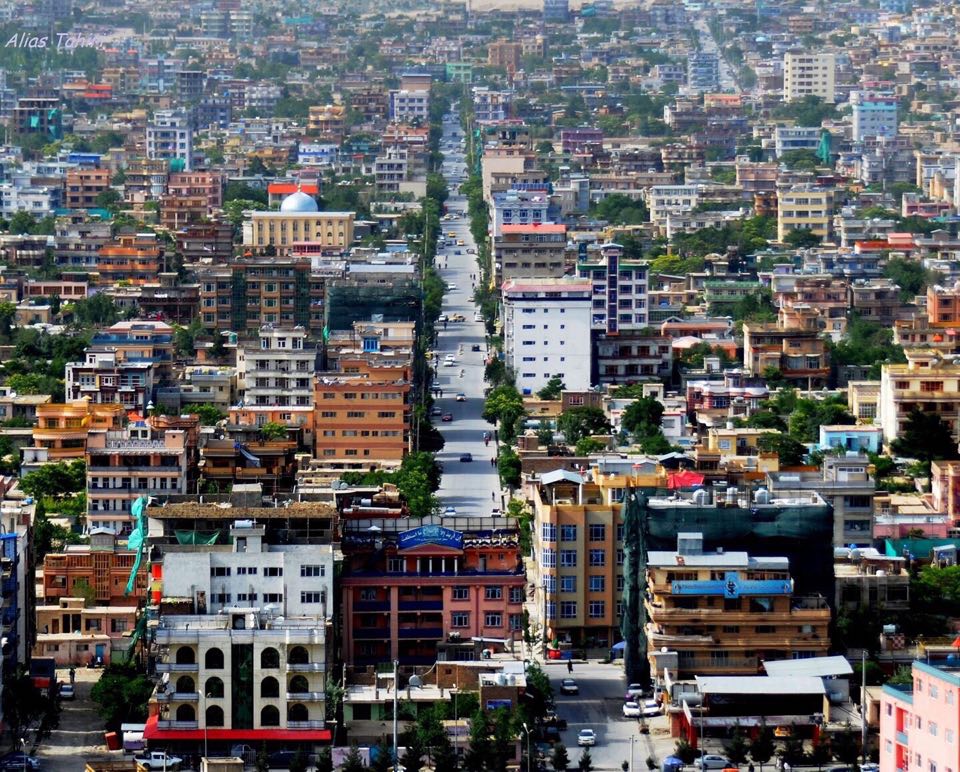 Kabul, the capital of Afghanistan
Kabul, the capital of Afghanistan
Tell us about yourself
I am a Civil Engineer from Afghanistan. I obtained my training from Al-Falah University. Before moving to Korea for my first Master’s in Environmental Engineering and Environmental Technology at Hankyong National University, I worked for Afghanistan’s Ministry of Rural Rehabilitation and Development “MRRD” in the engineering department.
Besides that, I nurse a passion for socio-development issues, an intrigue that got me into enrolling for my ongoing master’s degree in development policy. My focus centers on sustainable development and environmental policy.
Outside class, I serve as the unofficial ambassador of my country here having been appointed by KDI School and the Sejong municipality. I visit schools and universities to give lectures about my country, culture, tradition, history, and daily life. I seek to change the image of Afghanistan in the minds of students and foreigners; portraying my country for what it is and not the negative side the media has so long perpetuated.
I am curious about this engineering-development policy marriage. Why did you end up doing a master’s in social science? How do you intend to fuse the knowledge and training in the near future?
The interest dates back to my undergraduate days when I used to research and work on development issues within my major. It then morphed into the work I got involved with right after university. Immersing myself into the ‘a to z’ of development projects at the ministry stretched my outlook and adjusted my approach to work. Even though the satisfaction that came with handling the technical side of the projects was gratifying, the development impact our work had on villages, neighborhoods, and cities in the province of Kabul was eternally sublime. Hence the beginning of courtship between engineering and development policy.
My country’s priorities revolve around the elevation of socio-economic conditions of people and therefore my marriage of knowledge can play a significant role. The government has a strategic document, National Priority Programs (NPPS), that seeks to guide the development process of Afghanistan. Young Afghans are being trained to run the national institutions that will implement the plans contained in the document in the near future. Since infrastructure development forms a part of these priorities, I hope to come on board and contribute. My training in development policy will help to formulate better infrastructure policies for sustainable development.
On the other hand, coming from a conflict-stricken zone I have devoted my time to analyze economic development issues in the context of a post-conflict and developing world. Learning to formulate policies that are tailored to countries experiencing conflicts is a priority for me. As a future policymaker, and especially one from a conflict-prone zone, I am not expected to formulate policies for the formulation’s sake, but to come up with policies that champion sustainability. Policies that guide the making of robust projects; robust enough to weather any kind of storm or turbulence.
I must admit that Afghans are some of the most hospitable people on earth, speaking from practical experience. Tied to this hospitality, there is tea. Tell me more about this.
Hospitality and tea play a very important part in the lives of the Afghan people. Tea is drunk copiously throughout the day in Afghanistan, be it in formal gatherings, casual meetups, or tea parties.
The warmth and generosity of Afghan hospitality can be a tad overwhelming at times. Almost all Afghans have a guestroom in their houses that is set aside for visitors. Any time you pay them a visit, they will welcome you with open arms. At any invitation, they will sit you down at what they refer to as ‘the table of honor’ before serving you a warm cup of tea (chai). In our culture, tea brings people together and opens the door for friendship.
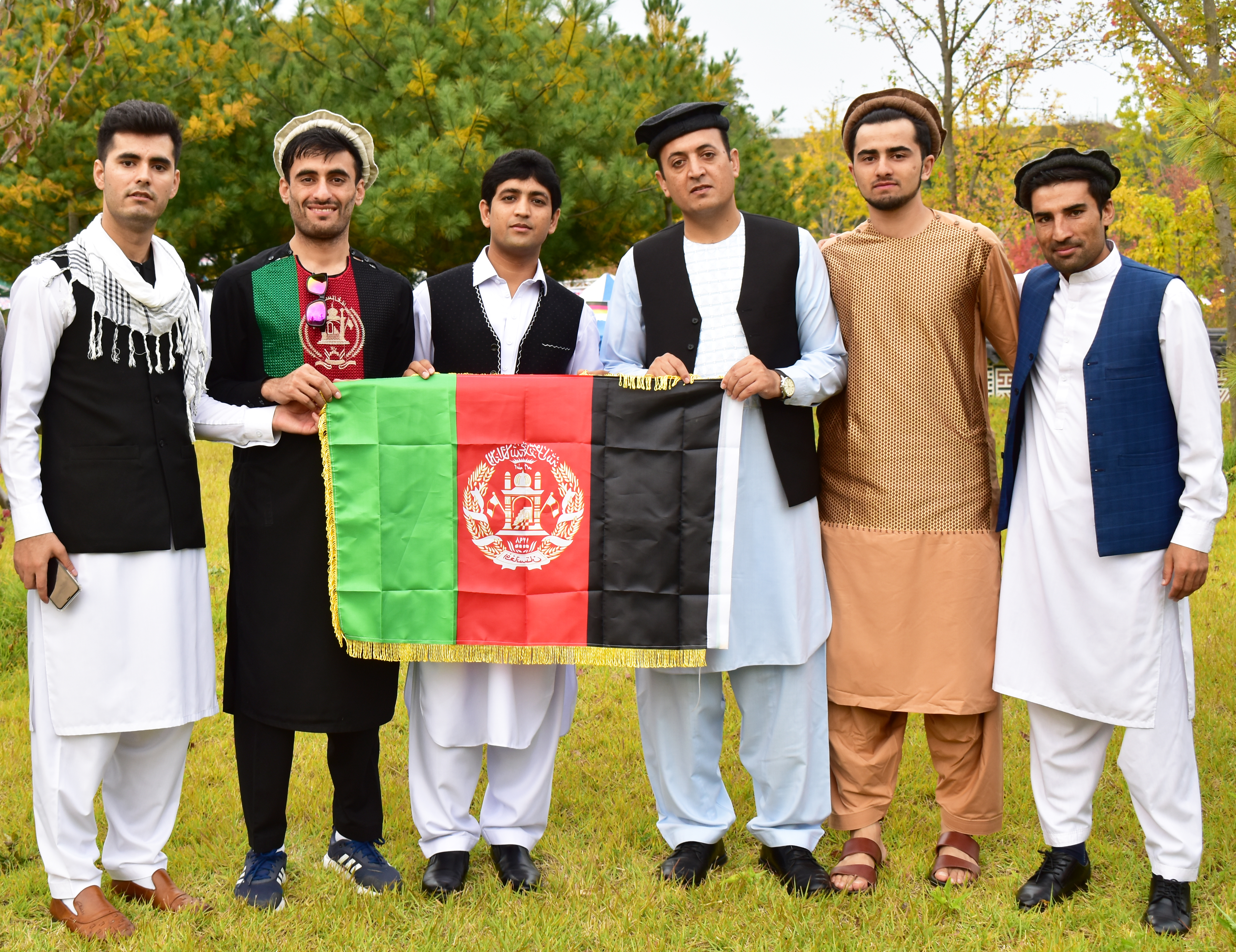 Mr. Rahim (in black) with fellow Afghanis at KDIS
Mr. Rahim (in black) with fellow Afghanis at KDIS
Speaking of tea, the other day I took a cup of Afghanistan’s saffron before bed and ended up sleeping like a baby. I got a sense of why it is the best in the world. Tell us more about Afghanistan’s Saffron and its importance to the country’s economy.
Saffron is the most expensive spice in the world. A small bottle can fetch around USD 200. Our Saffron is ranked the best globally, a position it has held for 8 consecutive years. According to the Ministry of Agriculture and Irrigation, Afghanistan produces 6.3% of the world’s Saffron. We export it to Europe, the United States, and the Gulf countries. Over the last decade, the cultivation of Saffron has become more popular and profitable. The rise in investments has been a boon to job creation; offering a lot of opportunities to the unemployed. The spice has the potential to raise Afghanistan’s prestige.
And why is saffron so expensive? It has a lot of health benefits. It is a powerful antioxidant, boosts moods and lowers distress, has cancer-fighting properties, reduces heart-disease risk factors, lowers blood sugar levels, improves memory in adults with Alzheimer’s disease, among other benefits.
Allow me to address the subject of war in Afghanistan. Afghanistan has been at war for years dating back to the Soviet invasion in 1979. To what extend has war disrupted the economic productivity, daily life, and the social well-being of the country.
First, I think that Afghanistan like any other country has its fair share of problems; from political, social, security down to environmental. Therefore, its issues should not be met with any ‘special’ surprise.
To come to your question though, before the war Afghanistan was very developed, democratic, and way stable than any other country in the region. We had strong institutions, very well-educated people, good infrastructure, and basically all other things a country would need to advance economically. Unfortunately, in the aftermath of war, we lost everything. People emigrated. The war had taken a toll on us for more than three decades until 9/11 when the US came to Afghanistan. A new government was set up and then the reconstruction began. Since then we have made some progress. At that time (2001) our GDP per capita was $116 but now it is $648; the total number of students enrolled in schools was 1 million but now it is 10 million; a considerable number of citizens who had emigrated to Pakistan and Iran are now back. These are a few of the many changes that have occurred.
The turn of events in the recent past has offered something to hope for. Not so long ago, the US and the Taliban commenced a series of peaceful negotiations. The government is about to enter peace negotiations with the Taliban. Other flashes of change have raised hopes too. During the 2018 Eid-ul-Fitr, the government and the Taliban had a three-day cease-fire, something that had never happened in the previous 40 years. The same thing happened last week, during Eid-ul-Fitr. Both parties stopped cease-fire and went on to embrace. In those three days, there was no conflict nor casualties across the country.
Afghanistan is slowly changing. Things are better. There is a new breed of young people who are learned, better informed, and want to transform their lives and their country. Tell me something about this new wave.
Our old generation spent their time in war. With schools under destruction, most remained uneducated. The hope lies high in the younger generation. Starting in 2001, most of the young generation went to study abroad. Thousands are doing their bachelor’s, master’s, and PhD abroad, especially in the US, Europe, and India; and are expected to come back and build their country. There is a genuine hunger for education. Parents are nudging their children to join schools and make something out of themselves. A lot of colleges and universities have sprung up to feed and meet this hunger. The future is indeed bright.
The young hold the torch for our country. In fact, our government is made of many young people. Most of the important decisions are made by young leaders.
For those who would plan to visit Afghanistan someday, what are they to expect?
As I mentioned earlier, we score high on hospitality. The treatment you get as you settle in or wander about is affable. There are a number of historical places; some already declared as UNESCO world heritage sites for history enthusiasts to explore. The ‘Buddhas of Bamiyan’ built in the 4th century and ‘Minaret of Jam’ are good examples. In addition to that, we have a ton of national parks for one to visit. ‘Bande-Amir,’ a national Park located in the Bamyan province has a series of six deep blue lakes separated by natural dams. The site of ‘Band-e Amir’ has been described as Afghanistan’s ‘Grand Canyon’ and draws thousands of tourists a year. ‘Wakhan Walley’ and ‘Baghe-Babar’ national parks make the gamut of other parks that one can opt to visit when they land here.
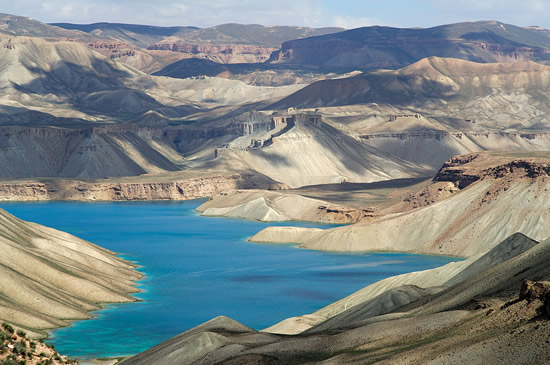 Band-e Amir Lakes, Photo by: Alireza FIROUZI – Panoramio
Band-e Amir Lakes, Photo by: Alireza FIROUZI – Panoramio


